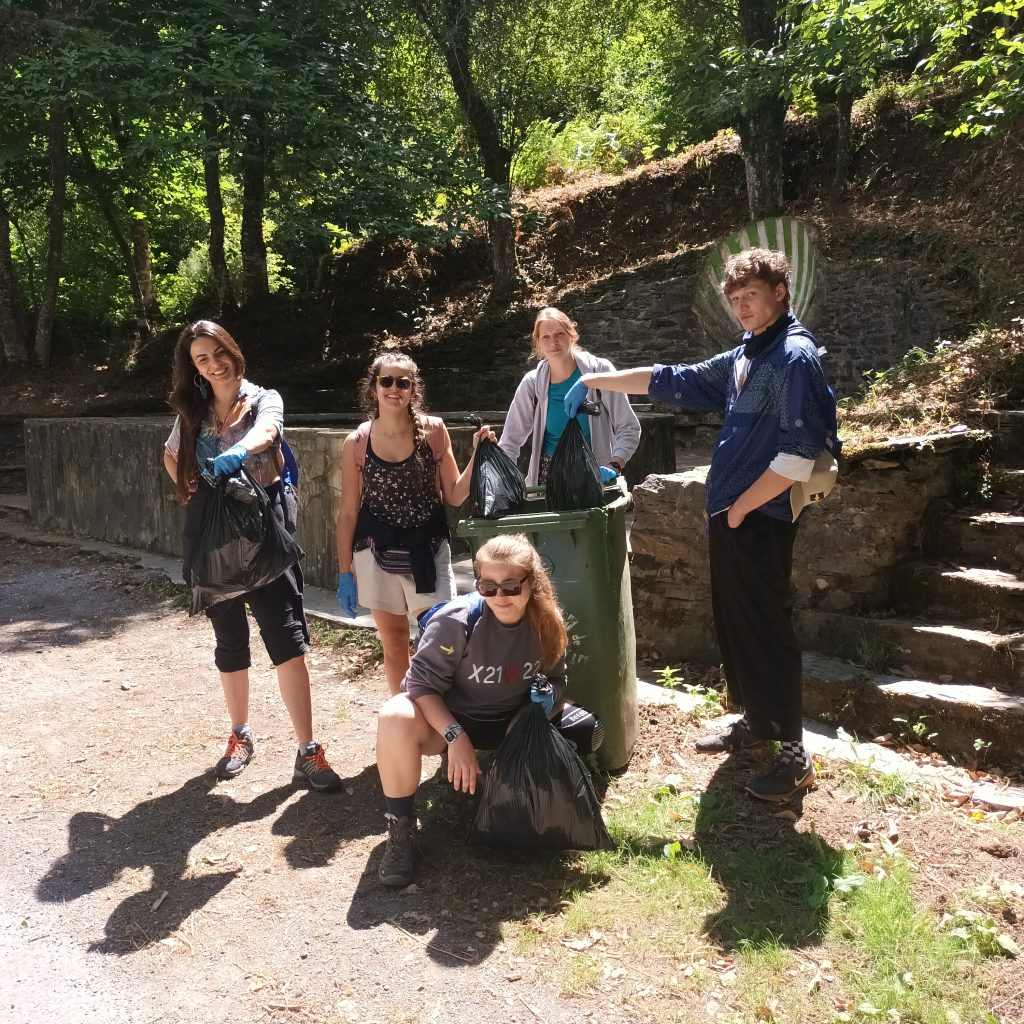
Go Green!
?? Yesterday, 27-07, the group of Triacastela explored another way of Camino.
We walked around 12 km there and back from our village to San Xil trying our best to identify and report the less accessible places. We also collected trash on the way: all types of it, but mostly toilet paper in more hidden places in nature that pilgrims use as public toilets, which turns out to be the biggest problem on the Camino.
It is interesting because overall people seem to care about nature and we don’t exactly find that much trash, but when it comes to toilet paper, people suddenly forget about it.
Is it because they don’t know the length of time it takes for the paper to degrade?
Do they think it’s “biodegradable” so it’s okay to throw it in nature? That might be the case, but that doesn’t take into account the effect it has on other people walking in the forest and seeing toilet paper. It’s not being considerate of the visual and more practical environmental side of things. So really it seems that it’s because of their own convenience: they simply don’t want to carry their own dirty toilet papers. They might justify it to themselves by saying that it’s “biodegradable”.
So what’s the solution? There are many possible ones.
Install toilets? Maybe not so appropriate doing that in nature, as it would lead to more problems.
Install garbage bins? Also maybe not be so appropriate in nature, as animals have a tendency to ravage them. Additionally, there were two garbage bins on the way, not enough but completely unused.
So in the end it is because of the mindset of people.
To bring about real change, we have to focus on transforming what’s inside of us, not outside. We have to raise people’s consciousness of the environment. We could do this by installing posters with clear information, such as the time it takes for toilet paper to decompose, and remember them the trash they produce doesn’t belong to the forest.
Our goal should be to invite pilgrims to feel like guests of the Earth and not the owner.
?? Ayer, 27-07, el grupo de Triacastela exploró otro camino del Camino.
Caminamos alrededor de 12 km de ida y vuelta desde nuestro pueblo hasta San Xil haciendo todo lo posible para identificar y reportar los lugares menos accesibles. También recogimos basura en el camino: todo tipo de basura, pero sobre todo papel higiénico en lugares más recónditos de la naturaleza que los peregrinos utilizan como baños públicos, lo que resulta ser el mayor problema del Camino.
Es interesante porque, en general, la gente parece preocuparse por la naturaleza y no encontramos exactamente tanta basura, pero cuando se trata de papel higiénico, la gente de repente se olvida de él.
¿Es porque no saben cuánto tiempo tarda el papel en degradarse?
¿Piensan que es “biodegradable”, por lo que está bien tirarlo a la naturaleza? Ese podría ser el caso, pero eso no tiene en cuenta el efecto que tiene en otras personas que caminan por el bosque y ven papel higiénico. No es ser considerado con el lado visual y ambiental más práctico de las cosas. Así que realmente parece que es por su propia conveniencia: simplemente no quieren llevar sus propios papeles higiénicos sucios. Podrían justificarse a sí mismos diciendo que es “biodegradable”.
Entonces, ¿cuál es la solución? Hay muchos posibles.
¿Instalar baños? Tal vez no sea tan apropiado hacer eso en la naturaleza, ya que generaría más problemas.
¿Instalar contenedores de basura? Además, tal vez no sea tan apropiado en la naturaleza, ya que los animales tienden a devastarlos. Además, había dos contenedores de basura en el camino, no suficientes pero completamente sin usar.
Así que al final es por la mentalidad de la gente.
Para generar un cambio real, debemos concentrarnos en transformar lo que está dentro de nosotros, no lo que está afuera. Tenemos que aumentar la conciencia de la gente sobre el medio ambiente. Podríamos hacerlo instalando carteles con información clara, como el tiempo que tarda en descomponerse el papel higiénico, y recordarles que la basura que producen no pertenece al bosque.
- Illegal waste points
- French Way


